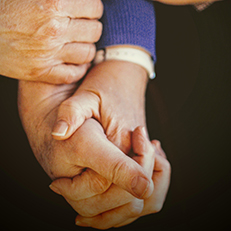Supporting the emotional wellbeing of children and adults with severe and profound intellectual disabilities
NAC offers online how to guides and courses and in person training and consultancy
NAC's vision
NAC's vision is for the emotional and mental health needs of children and adults with severe and profound intellectual disabilities to be recognised and cared for using the latest evidence and neuroscience based practices.
Read more'NAC provides guidance on how to put the NHS 5 steps to mental wellbeing into practice for people with severe and profound intellectual disabilities.'
Start exploring guidance on wellbeing experiences
Choose a collection identifier from the selection below.

Are you sure you'd like to remove this collection item?
All associated data will be deleted.

Are you sure you'd like to add this collection?
The benefits of our guidance
Our guidance gives you step by step instructions on activities and practices that you can use to improve quality of life and which can:
- Increase feelings of calm and safety
- Decrease anxiety, depression and fear
- Reduce distressed or challenging behaviours
- Enhanced expression, social connection and reduced loneliness and isolation
- Support healing from trauma
Who our 'how to' guidance is for
Our free ‘how to’ guides are on non-invasive, natural ways to support the emotional and mental wellbeing of people with severe and profound intellectual disabilities for:
- Family and care-givers
- Educators
- Care and support staff
- Psychologists
- Therapists
- Nurses and social workers
As well as supporting the mental health of people with severe, profound and multiple learning disabilities, NAC guidance may be useful for carers of people on the autism spectrum, brain injury, dementia and other communication difficulties.








